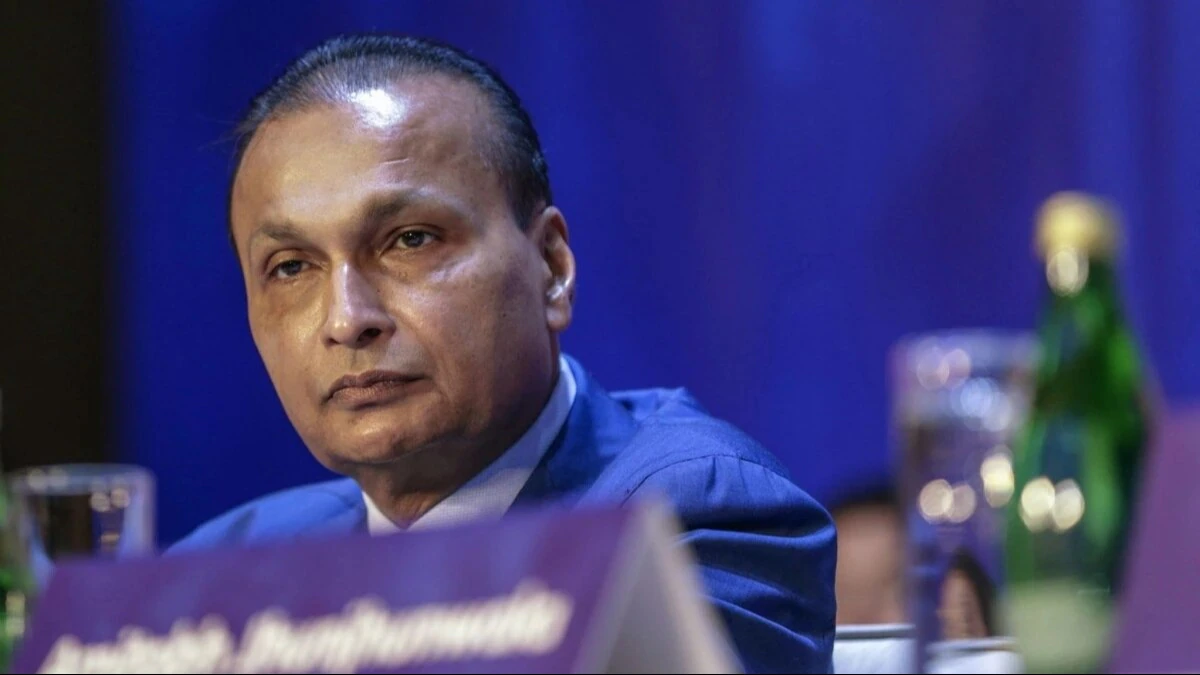Markets regulator Sebi has banned businessman Anil Ambani from the securities market for five years after concluding that he engineered a fraudulent plan to siphon off cash from Reliance Home Finance. Ambani had declared himself bankrupt before a UK Court back in February 2020.
Due to financial misappropriation from the company, market regulator SEBI has prohibited businessman Anil Ambani and 24 other entities, including former senior executives of Reliance Home Finance, from trading in the securities market for a of five years.
Ambani has been fined ₹25 crore by SEBI, and he has been prohibited for a period of five years from having any affiliation with the securities market, including serving as a director or Key Managerial Personnel (KMP) in any listed business or intermediary that is registered the market regulator.
Aug. 23, Mumbai (Reuters) – Anil Ambani, one of the most well-known businessmen in India, and 24 other people were prohibited from the stocks market for five years on Thursday night by the markets regulator of India due to allegations of cash diversion.
This move comes after an investigation into RHFL, where money was purportedly misappropriated through dubious loans, causing large losses.
Apart from the prohibition, Ambani has been fined ₹25 crore by Sebi and is not permitted to have any directorial or important management role in publicly traded firms or intermediaries that are registered with the regulator for a period of five years.
RHFL was fined ₹600,000 and prohibited from the securities market for a six months.
Through the course of Sebi’s inquiry, it was discovered that Ambani and other high-ranking officials at RHFL had been using Guaranteed Payment Credit (GPC) loans as a conduit for money. These loans were given to organizations with questionable credit histories, organizations that otherwise would not have been eligible for such large-scale financial assistance.
Unprecedented lending amounts given to unsuitable organizations
Sebi stated that RHFL provided GPC loans of hundreds of crores to companies with low assets and a negative net worth in FY18 and FY19. These loans were given out with no security or collateral, which is a big departure from the norm for credit due diligence.
The management of RHFL ignored internal credit ratings and disregarded the need to determine the likelihood of default, enabling these high-risk loans to be approved without due diligence.
Sebi’s investigation revealed that RHFL’s management often departed from conventional credit due diligence, even in cases when borrowers manifested evident financial vulnerabilities. Because of this lack of inspection, hazardous loans were given out without the necessary supervision.
RHFL’s board explicitly directed on February 11, 2019, to stop disbursing GPC loans; yet, the business proceeded to make these loans, including those that Anil Ambani, the group leader, personally approved. The regulator emphasized that the company’s serious internal control shortcomings are exacerbated by this disrespect for board directions.
Subsequent examination demonstrated a connection between the promoter group and the recipients of the cash, as well as the GPC loan borrowers; post-facto assurances from promoter-group firms validated this connection. In June 2019, PwC, the statutory auditor, tendered their resignation, citing concerns over the loans’ quality and recoverability.
Important participants were fined
Three important RHFL executives, Amit Bapna, Ravindra Sudhalkar, and Pinkesh Shah, have been fined ₹27 crore, ₹26 crore, and ₹21 crore by Sebi. Furthermore, other organizations connected to the deceitful plan have been penalized ₹25 crore apiece. Their participation in enabling or profiting from the unlawful loan disbursements is the reason for these punishments.
According to Sebi’s findings, Anil Ambani was instrumental in arranging the fraudulent loans since he was the chairman of the Anil Dhirubhai Ambani Group and a major supporter of RHFL’s parent company. His clout was crucial in sanctioning large loan amounts and allocating money to connected organizations.
Despite blatant departures from established protocols, Bapna, the credit committee member and former CFO of RHFL, was instrumental in the loans’ approval. Even after the board ordered that GPC loan disbursements be stopped, he persisted in facilitating them.
In his capacity as RHFL’s CEO, Sudhalkar was in charge of presiding over loan approval and administration. Sebi pointed out that he disregarded the board’s directives, neglected to collect money, and broke promises—all of which ultimately led to the company’s demise.
Sebi stated in its ruling on Thursday that Shah, the CFO in charge of accounting and finance, certified the company’s financials as accurate even though he was aware of the dubious lending practices and the auditor’s concerns.
Thanks!
READ MORE : 14 People Killed When A Bus From India Falls In A River In Nepal, Rescue Operations On…


[…] Chart: What should be your correct weight according to age and height? Sebi bans 24 additional firms and Anil Ambani from the securities market for a period of five year… 14 People Killed When A Bus From India Falls In A River In Nepal, Rescue Operations On… […]
Techno rozen I am truly thankful to the owner of this web site who has shared this fantastic piece of writing at at this place.
[…] head of ICC? Weight Chart: What should be your correct weight according to age and height? Sebi bans 24 additional firms and Anil Ambani from the securities market for a period of five year… 14 People Killed When A Bus From India Falls In A River In Nepal, Rescue Operations On… […]
Your blog is a beacon of light in the often murky waters of online content. Your thoughtful analysis and insightful commentary never fail to leave a lasting impression. Keep up the amazing work!
allegheny county real estate I’m often to blogging and i really appreciate your content. The article has actually peaks my interest. I’m going to bookmark your web site and maintain checking for brand spanking new information.